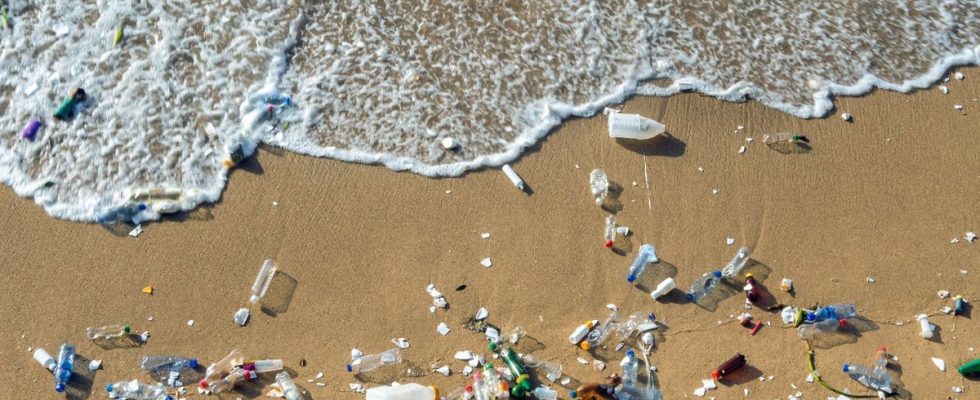Published on
Updated
Reading 2 mins.
Plastic pollution in the world’s oceans has reached “unprecedented levels” for 15 years, warns a study, which urges the world to conclude the international treaty, expected by 2024, supposed to save the planet from this waste.
The study, published in the American journal PLOS One, estimates that 170,000 billion pieces of plastic on the surface of the oceans, mainly microplastics, have been largely released into the sea since 2005. The total weight of this pollution represents 2, 3 million tons, the study estimates.
This contamination”has reached unprecedented levels over the past 15 years“, indicates the study which judges the previous estimates underestimated and even foresees an acceleration of the phenomenon if nothing is done to remedy it.
The results are based on plastic samples from more than 11,000 stations around the world, over 40 years, from 1979 to 2019.
They found no clear trend until 1990, and then fluctuations between 1990 and 2005. But beyond that date, “we are seeing a very rapid increase, due to rapid production growth and a limited number of release control policies“, told AFP Lisa Erdle, one of the authors.
In the middle of the ocean, this pollution comes mostly from fishing gear and buoys, while clothing, car tires and single-use plastics often pollute closer to shore. Their presence threatens animals, which become entangled in the larger pieces or ingest microplastics that then travel up the food chain to humans.
If the trend continues, plastic use is expected to nearly double from 2019 in G20 countries by 2050, to 451 million tonnes per year, according to a recent international report. After the war, in 1950, there were only two million tons produced on the planet.
Waste has certainly decreased at times between 1990 and 2005, in part thanks to effective policies, such as the 1988 MARPOL convention, to put an end to discharges by ships. But recycling, even in the wealthiest countries, has not been enough to stem the problem.
For the past year, 175 countries have agreed to put an end to this pollution by developing a binding treaty by the end of 2024 under the aegis of the United Nations. The next negotiating session is scheduled for May in Paris. For the authors, this treaty must be ambitious enough to reduce the production and use of plastic, but also better manage its elimination.
“Recovering plastic from the environment has only a limited effect, and solutions must therefore focus on limiting plastic waste“, further indicates the study.
